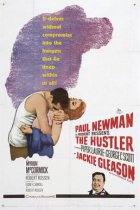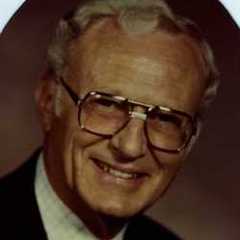
The Hustler Page #12
- NOT RATED
- Year:
- 1961
- 134 min
- 1,578 Views
SARAH:
What makes you know so much? How do you know
what Eddie was thinking?
BERT:
I know. Been there myself. We've all been there,
haven't we, Miss Packard?
Eddie glances at Sarah who stares mutely at Bert.
BERT:
(takes a cigarette)
Got a match, Eddie?
Eddie reaches across to light Bert's cigarette with the lighter Sarah
gave him. Bert's own lighter is on the table, before him. Sarah sees
it, picks it up, and sparks it into flame.
SARAH:
Doesn't your lighter work, Mr. Gordon?
BERT:
(smiling politely)
(to Eddie, who still holds the flame)
How's the hands?
EDDIE:
Fine.
BERT:
Good. I'd hate to think I was putting my
money on a cripple.
EDDIE:
(angrily)
Hey, whaddya say something like that for?
SARAH:
It's all right, Eddie. I'm sure Mr. Gordon
meant no offense. It was a figure of speech.
BERT:
That's right, Miss Packard.
SARAH:
And a fact is a fact.
BERT:
She's a smart girl, Eddie.
Bert goes back to shuffling his deck of cards.
DISSOLVE TO:
69 INT. LOUISVILLE HOTEL LOBBY - NIGHT
The lobby is thronged with gamblers and their women, sportsmen,
tourists, all there for the Derby. A jazz combo can be heard over the
din of their voices. Eddie, looking excited, leads Sarah through the
crowd. Behind them is Bert, his face now shaded by dark glasses,
following a bellhop to the main desk.
BELLHOP:
Right this way, Mr. Gordon.
He forces his way through some people to get to the desk.
BELLHOP:
Here you are, Mr. Gordon.
CONCIERGE:
Suite fifty-six.
BERT:
Look, I-I wired ahead for two suites adjoining.
CONCIERGE:
I don't recall.
BERT:
Well, I do. I want two suites.
CONCIERGE:
Well, I'm sorry, Mr. Gordon. We're filled up.
This is Derby week.
Bert displays a neatly folded wad of money in his hand.
BERT:
Look, son, you've got it all wrong. You must
have gotten my wire. Look through your
reservations, huh?
CONCIERGE:
(artfully accepts cash bribe)
I'll see what I can do ... You were right, Mr.
Gordon. I mislaid your wire. Uh, two adjoining
suites?
Eddie laughs and moves toward the open door leading to the billiard
rooms. His face glows as he watches the flow of men moving in and out
of the crowded room, and hears the sound of clicking pool balls. He
tucks his cue case under his arm and turns to Bert and Sarah who join
him.
EDDIE:
(to Bert)
You know, that's real sweet music in there.
You can almost smell the action and the money.
You know, I can feel it right down in the
bottom of my shoes.
BERT:
(laughs)
Come on, let's go...
Before they can head to their rooms, a small, neatly groomed man
approaches Eddie.
BILLY:
Eddie!
EDDIE:
(shaking his hand warmly)
Hey, Billy, how are ya?
BILLY:
Fast Eddie. I didn't know you were here.
Everybody's here. It's like a hustler's
convention. The Whetstone Kid, Johnny Jumbo.
C'mon in. The guys'll be glad to see you.
C'mon.
EDDIE:
(to Sarah)
What room are you in?
SARAH:
Fifty-seven.
EDDIE:
I'll be up later.
Sarah turns toward the elevators, with Bert behind her, jiggling his
keys.
DISSOLVE TO:
The bellboy unlocks the door and Sarah enters. The doors to the other
suite are open. As she catches sight of Bert arranging things with the
bellboy she closes one door. The bellboy leaves as she moves to close
the other.
BERT:
Oh, wait a minute, Miss Packard.
SARAH:
We're neighbors now. You can call me Sarah.
He comes to the door, holding it open.
BERT:
I want to talk to you.
SARAH:
Do we need words?
BERT:
Yeah, I think we do. We could try to cut each
other up. But that would be bad for everybody.
Bad for me, bad for you. And worst of all, be
bad for Eddie.
SARAH:
You know what's good for him?
BERT:
To win.
SARAH:
For whom and for what?
BERT:
For what makes the world go round. For money,
and for glory.
SARAH:
You didn't answer my first question. For whom?
BERT:
All right. Today for me, tomorrow for himself.
SARAH:
No, there's no tomorrow. Not with you. You own
all the tomorrows because you buy them today,
and you buy cheap.
BERT:
(nods)
Well, nobody has to sell.
He turns away.
SARAH:
You bastard.
BERT:
(turns back to her, savagely)
Listen, Miss Ladybird, you're here on a
rain check and I know it. You're hanging on by
your nails. You let that glory whistle blow
loud and clear for Eddie and you're a wreck on
a railroad track. You're a horse that finished
last. So don't make trouble, Miss Ladybird.
Live and let live. While you can.
There is a long pause as he glares at her.
BERT:
I'll make it up to you.
SARAH:
(weakly)
How?
BERT:
You tell me.
He goes back into his room. She closes the door and leans against it.
CUT TO:
71 EXT. RACETRACK - DAY
Screams are heard as the horses jerk out of the starting gate to begin
their runs.
CUT TO:
Eddie cashes in a winning ticket
EDDIE:
(to the cashier)
Thanks.
Eddie moves through the ornate racetrack bar to join Sarah at a table.
Sarah has been drinking.
EDDIE:
(excited)
Where's Bert?
SARAH:
He went off someplace.
EDDIE:
Well, that old lovin' horse paid twenty-two
forty.
(counts his money)
Let's see ... two hundred I won from the jockey
last night. And today at the track ... I got
(folds it up)
Here, you hold it.
SARAH:
(takes it)
Why?
EDDIE:
Just for luck.
As she puts the money in her purse, Bert sits down.
BERT:
Hey, Findley's here.
EDDIE:
Where?
BERT:
Over there by the bar.
We see Findley, studying his program and holding a drink in his hand.
He is tall and refined, with a pale, debauched, yet oddly youthful face
that some men of forty or more sometimes have. A cork-tipped cigarette
dangles from his fingers.
EDDIE:
Aren't you gonna go over and talk to him?
BERT:
Nah. Sit tight. He'll be over here.
Findley spots Bert, takes a long drag on his cigarette, and saunters
toward them.
BERT:
(to Sarah)
Are you ready for another?
SARAH:
Thank you.
Bert points to Eddie.
EDDIE:
No, no more for me.
FINDLEY:
(joins them, speaks in a soft
Southern drawl, to Bert)
Well, hello. Haven't seen you in a long time.
BERT:
Well, hello. Haven't been here for a long time.
(makes introductions)
Ah, Miss Packard, Eddie Felson ... James ...
Bert snaps his fingers, pretending to forget Findley's name.
FINDLEY:
Findley.
EDDIE:
Glad to meet you.
FINDLEY:
And I you.
(shakes Eddie's hand)
I think I've heard about you, Mr. Felson. You
play pocket billiards, don't you?
EDDIE:
(playing along)
Now and then. Why, do you?
FINDLEY:
A little, although I'm afraid I generally lose.
BERT:
So does Eddie.
EDDIE:
Well, I win sometimes.
FINDLEY:
(smugly)
I'll bet you do, Mr. Felson. I'll just bet you
do.
Translation
Translate and read this script in other languages:
Select another language:
- - Select -
- 简体中文 (Chinese - Simplified)
- 繁體中文 (Chinese - Traditional)
- Español (Spanish)
- Esperanto (Esperanto)
- 日本語 (Japanese)
- Português (Portuguese)
- Deutsch (German)
- العربية (Arabic)
- Français (French)
- Русский (Russian)
- ಕನ್ನಡ (Kannada)
- 한국어 (Korean)
- עברית (Hebrew)
- Gaeilge (Irish)
- Українська (Ukrainian)
- اردو (Urdu)
- Magyar (Hungarian)
- मानक हिन्दी (Hindi)
- Indonesia (Indonesian)
- Italiano (Italian)
- தமிழ் (Tamil)
- Türkçe (Turkish)
- తెలుగు (Telugu)
- ภาษาไทย (Thai)
- Tiếng Việt (Vietnamese)
- Čeština (Czech)
- Polski (Polish)
- Bahasa Indonesia (Indonesian)
- Românește (Romanian)
- Nederlands (Dutch)
- Ελληνικά (Greek)
- Latinum (Latin)
- Svenska (Swedish)
- Dansk (Danish)
- Suomi (Finnish)
- فارسی (Persian)
- ייִדיש (Yiddish)
- հայերեն (Armenian)
- Norsk (Norwegian)
- English (English)
Citation
Use the citation below to add this screenplay to your bibliography:
Style:MLAChicagoAPA
"The Hustler" Scripts.com. STANDS4 LLC, 2025. Web. 24 Feb. 2025. <https://www.scripts.com/script/the_hustler_867>.







Discuss this script with the community:
Report Comment
We're doing our best to make sure our content is useful, accurate and safe.
If by any chance you spot an inappropriate comment while navigating through our website please use this form to let us know, and we'll take care of it shortly.
Attachment
You need to be logged in to favorite.
Log In